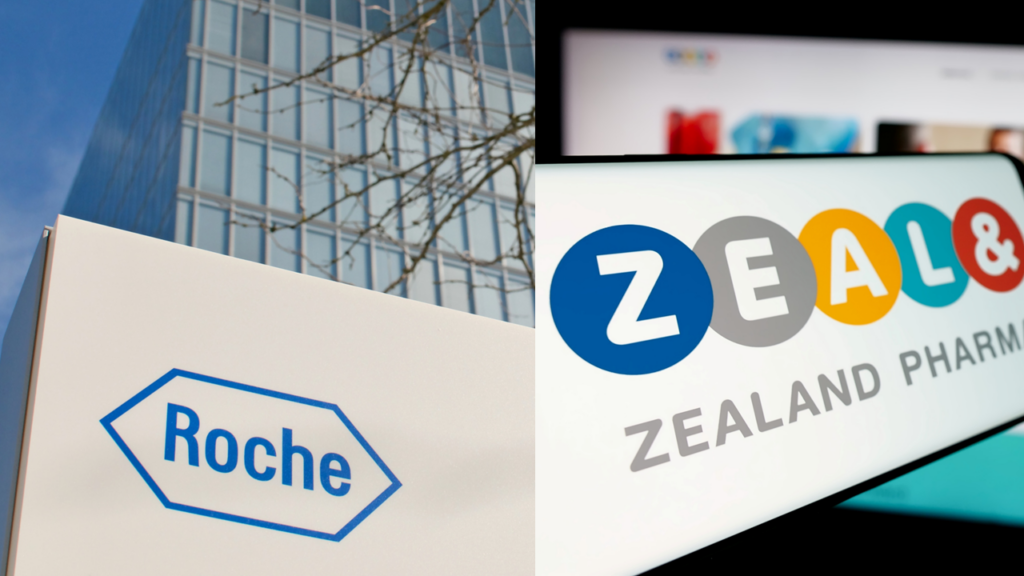Roche, a global leader in biotechnology and diagnostics, has entered into an exclusive collaboration and licensing agreement with Zealand Pharma, a specialist in innovative therapeutics, to co-develop and co-commercialize petrelintide as a potential foundational therapy for people with overweight and obesity.
Under the deal, Zealand Pharma will receive an upfront cash payment of $1.65 billion — $1.4 billion at closing and an additional $250 million over the first two anniversaries.
The partnership also outlines development milestones of $1.2 billion, primarily linked to initiating Phase III trials for petrelintide as a stand-alone therapy, with sales-based milestones that could push the total value to $5.3 billion.
In return, Zealand Pharma will pay Roche $350 million for the fixed-dose combination product involving petrelintide and Roche’s lead incretin asset CT-388.
Petrelintide, Zealand Pharma’s long-acting amylin analog, is currently in Phase II clinical development and is designed for once-weekly subcutaneous injections. Patients could receive treatment once a week, much like some modern diabetes therapies.
Amylin, a hormone co-secreted with insulin, plays a key role in regulating appetite by enhancing leptin’s effects — the hormone that signals fullness after eating. Early data suggest that petrelintide might offer improved tolerability and effective weight loss compared to existing treatments.
Roche’s CT-388 is a dual agonist targeting the GLP-1 and GIP (glucose-dependent insulinotropic polypeptide) receptors and is being developed to treat both obesity and type 2 diabetes.
The two companies plan to explore the benefits of combining petrelintide with CT-388, potentially offering a new therapeutic approach that not only promotes weight loss but also enhances overall metabolic health.
The agreement calls for co-commercialization in the US and Europe, while Roche secures exclusive rights in the rest of the world and will manage commercial manufacturing and supply through its extensive global network.
In a recent financial report, Zealand Pharma highlighted positive clinical outcomes from a 16-week Phase Ib trial with petrelintide. The report also noted that a large Phase IIb trial (ZUPREME-1) is underway — with enrolment expected to be completed in the first half of 2025 — and that a second Phase IIb trial (ZUPREME-2) is planned to evaluate petrelintide in individuals with type 2 diabetes.
Both companies are optimistic about petrelintide’s potential to transform weight management, with regulatory approvals anticipated by the second quarter of 2025.
Elsewhere in the industry, the obesity treatment arena is bustling: a recent long-term strategic partnership between Corden Pharma and Viking Therapeutics secured integrated supply of both injectable and oral GLP-1 peptides, Novo Nordisk launched its NovoCare Pharmacy program to lower the cost of Wegovy (semaglutide) to $499 per month and Halia Therapeutics was awarded Novo Nordisk’s Golden Ticket, providing strategic support to advance its obesity and inflammation research.
Against this backdrop, analysts at TD Securities project GLP-1 sales to reach $139 billion by 2030, with US sales alone expected to hit $90 billion — driven largely by obesity treatments, which could contribute $58 billion.












Join or login to leave a comment
JOIN LOGIN